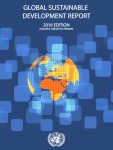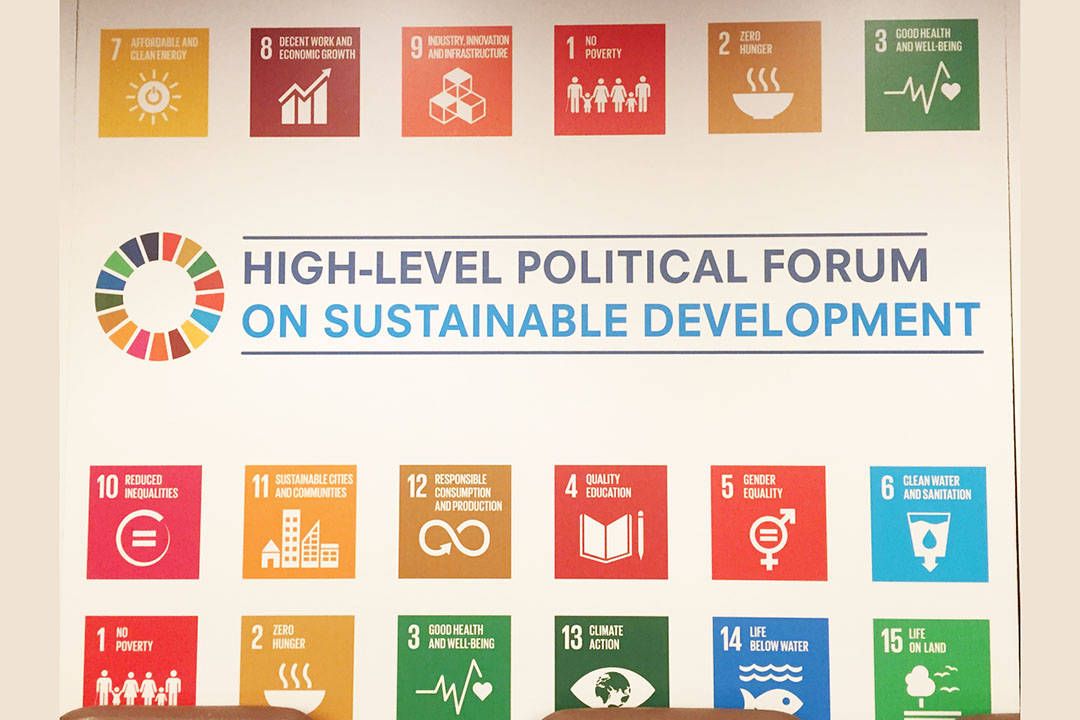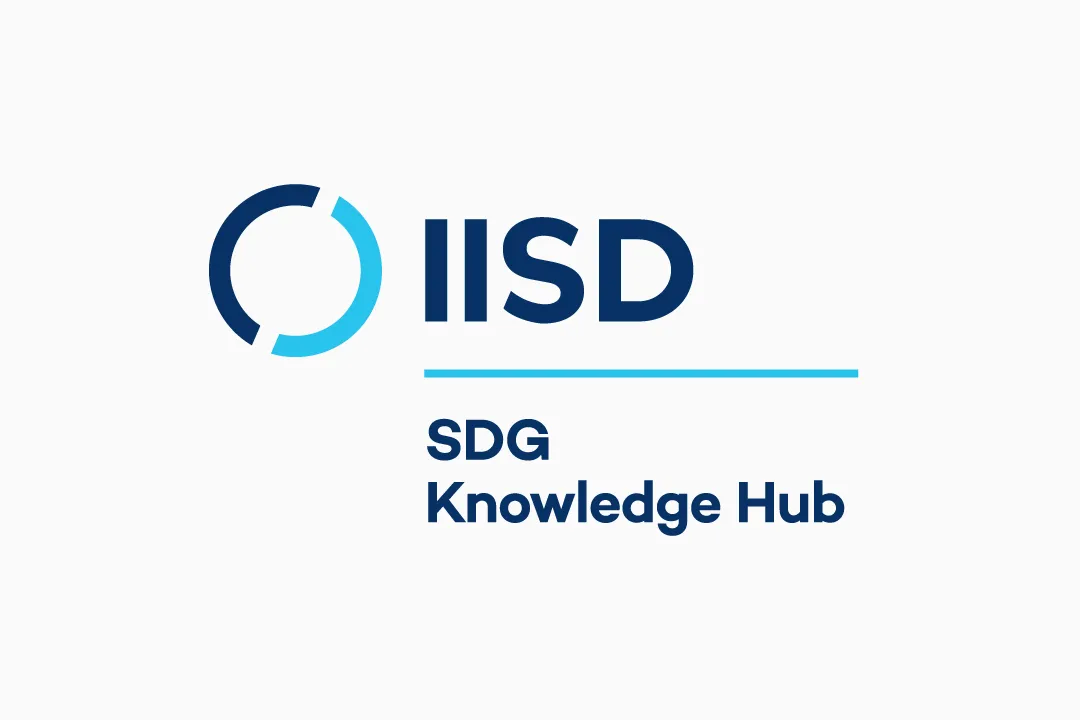 12 July 2016: Key elements of the 2030 Agenda for Sustainable Development have yet to be thoroughly researched, such as how to ensure that no one is left behind, according to the findings of the 2016 Global Sustainable Development Report (GSDR). The report concludes that the 2030 Agenda demands different research questions to determine appropriate strategies and approaches, and highlights the GSDR’s inclusive, multi-stakeholder platform and contribution to the science-policy interface.
12 July 2016: Key elements of the 2030 Agenda for Sustainable Development have yet to be thoroughly researched, such as how to ensure that no one is left behind, according to the findings of the 2016 Global Sustainable Development Report (GSDR). The report concludes that the 2030 Agenda demands different research questions to determine appropriate strategies and approaches, and highlights the GSDR’s inclusive, multi-stakeholder platform and contribution to the science-policy interface.
The UN Department of Economic and Social Affairs (DESA) released the GSDR ahead of the 2016 session of the High-level Political Forum on Sustainable Development (HLPF), which is convening from 11-20 July, at UN Headquarters in New York, US, under the theme, ‘Ensuring that no one is left behind.’
The GSDR report series “has become a platform and process for involving scientists and experts in the UN deliberations on sustainable development,” according to the report. For the 2016 report, 245 scientists and experts based in 27 countries, including 13 developing countries, as well as 20 UN agencies, departments and programmes, contributed to its preparation.
The 2016 GSDR features chapters on: ensuring that no one is left behind and the 2030 Agenda; the infrastructure-inequality-resilience nexus; perspective of scientists on technology and the Sustainable Development Goals (SDGs); inclusive institutions for sustainable development; and identification of emerging issues for sustainable development. On the identification of emerging issues, the report provides an overview of existing approaches and processes for their identification, and introduces guiding criteria for scanning and filtering them.
The GSDR’s three editions have contributed to the science-policy interface in two main ways, according to the 2016 report. First, the reports provide specific suggestions for how the HLPF can make the interface operational, such as providing policy-relevant data, analysis and information and translating the results of science-policy dialogue into policymaking. Second, the reports provide illustrations of how to generate policy-relevant conclusions from scientific assessments, the summary argues, pointing to the GSDR’s exploration of the SDGs as an integrated and indivisible set of Goals and its focus on nexus approaches and cross-cutting issues.
To ensure that no one is left behind, inclusiveness cannot be treated as an afterthought or mainstreamed in other areas, but must be an integral part of institutional design and function, infrastructure planning and development, and research and development, the report’s concluding chapter stresses. It recommends: taking into account the dynamic nature of inequality and deprivation; enacting preventive policies to ensure that new people or groups do not fall behind as others escape poverty and deprivation; and collecting systematic data and evidence on how existing development strategies reach the furthest behind, such as an inventory of meta-studies that review the effectiveness of development interventions in different SDG focus areas in reaching left behind groups. The GSDR 2016 concludes that the GSDR can continue to serve as “an ambitious yet actionable multi-year report for the benefit of the HLPF” and a “science engagement platform for science-policy interface.”
“Science is needed more than ever to inform the implementation of the ambitious new Agenda,” said UN Under-Secretary-General for Economic and Social Affairs Wu Hongbo, when presenting the 2016 GSDR to the HLPF on 12 July 2016. Wu elaborated, “science needs to be responsive to the questions that this new Agenda puts forward. There is need for dialogue, and the HLPF should remain a central platform for such dialogue.”
Intergovernmental consultations on the scope, methodology and frequency of the GSDR and its relationship with the SDG Progress Report took place earlier in 2016, and the outcome is expected to be adopted as an annex to the Ministerial Declaration resulting from this year’s HLPF. [Publication: Global Sustainable Development Report: 2016 Edition] [Summary for Policymakers] [Report Website] [UN Press Release] [IISD RS Story on GSDR Briefs] [SDG Knowledge Hub Story on GSDR Presentation to HLPF] [SDG Knowledge Hub Story on HLPF Ministerial Declaration Consultations]

